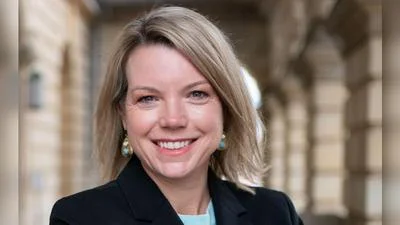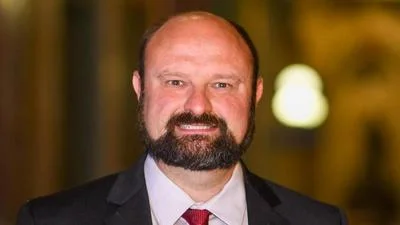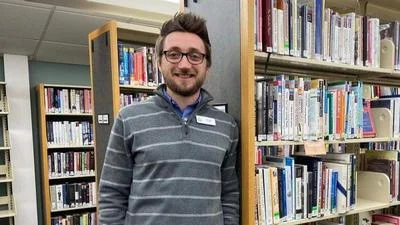Rob Natelson | Contributed photo
Rob Natelson | Contributed photo
A referendum proposal approved by Madison County voters to limit their tax rate hasn't received much press, but it is a good example of how taxing and spending should be handled by voters — rather than lawmakers — a conservative think tank senior fellow said during a recent Chicago radio show.
"The kind of restriction we're talking about is called a tax-and-expenditure limitation, or TEL," Rob Natelson, a senior fellow at the Independence Institute, said. "Economists and other researchers have been studying them for years. One of their conclusions is that the best ones are the ones that come from the voters, that if a legislature tries to craft its own resolution, even if it takes the form of a constitutional amendment, it usually looks like Swiss cheese because they give themselves so many outs. In fact, if it's not adopted by voter initiative, it may be worse than nothing because if they go ahead and adopt something that looks like a limitation, but really isn't, then that gives them political cover for tax increases and spending increases that they wouldn't otherwise have."

Madison County votes to limit taxing authority by wide margin
| Shutterstock
Natelson is a senior fellow in constitutional jurisprudence and head of the Article V Information Center at the Independence Institute, a Colorado-based think tank that promotes free market solutions to public policy issues. Natelson, a former University of Montana law professor who twice ran for governor in that state, has been involved in conservative politics for decades and joined the institute in 1998.
Natelson made his comments during the Nov. 20 edition of "Illinois Rising," hosted by conservative host Dan Proft, a co-founder, with Pat Hughes, of the Illinois Opportunity Project.
In addition, Proft is the Liberty Principles PAC chairman and treasurer and a senior fellow at the Chicago-based conservative think tank Illinois Policy Institute. "Illinois Rising" is a presentation of the Illinois Policy Institute.
During his talk with Natelson, Proft referred to the recent passage of the initiative in Madison County. By overwhelming numbers, 96,300 to 25,469, Madison County voters approved the ballot measure that sets the maximum county tax rate at 0.2 percent of the equalized assessed value of taxable property, according to election results in that county. That rate will replace the 0.25 percent that had been expected, according to the initiative.
Madison County voters also passed two tax-related advisory referendum questions. One of those ballot questions, which voters approved 111,134 to 10,961, said that a taxing body must mail taxpayers a truth-in-taxation public hearing notice at least 30 days prior to adopting a property tax increase. The second, which was approved 113,025 to 9,079, said Illinois must meet its constitutional responsibility to provide primary funding for the public school system, combined with a permanent reduction in property taxes for Madison County taxpayers. Neither advisory referendum question is binding.
The binding resolution passed by Madison County voters bears some resemblance to the so-called "Taxpayer Bill of Rights" passed by Colorado voters in 1992. That measure amended the state constitution to prohibit state and local government from raising taxes without voter approval. That measure also prohibits state and local governments from spending revenues collected under existing tax rates without voter approval, should those revenues grow faster than the rate of inflation and population growth.
However, the rank-and-file is not as organized as the political class, Natelson added.
"They're much better organized than most of the rest of us who are out there working for a living and are in our own businesses," he said. "They think constantly about ways to increase taxes and spending, so you do need some kind of a constitutional restriction."
Voters also should be wary of whom they vote into office if they want to limit government taxation and spending, Natelson said. As an example, he referred to former Colorado Republican Gov. Bill Owens, who supported that state's Taxpayer Bill of Rights.
"When he was governor, he supported an initiative which critically weakened the expenditure part of the Taxpayer Bill of Rights," Natelson said. "The part that requires votes on taxes is still largely, not entirely, in effect, but the expenditure limits have been weakened. And that was partly because a Republican governor changed his mind once he was in office."
Despite that, Natelson said voters have every incentive to become active in constituent-driven tax legislation.
"You have to keep a fairly tight leash if you want government to get better," he said.






 Alerts Sign-up
Alerts Sign-up